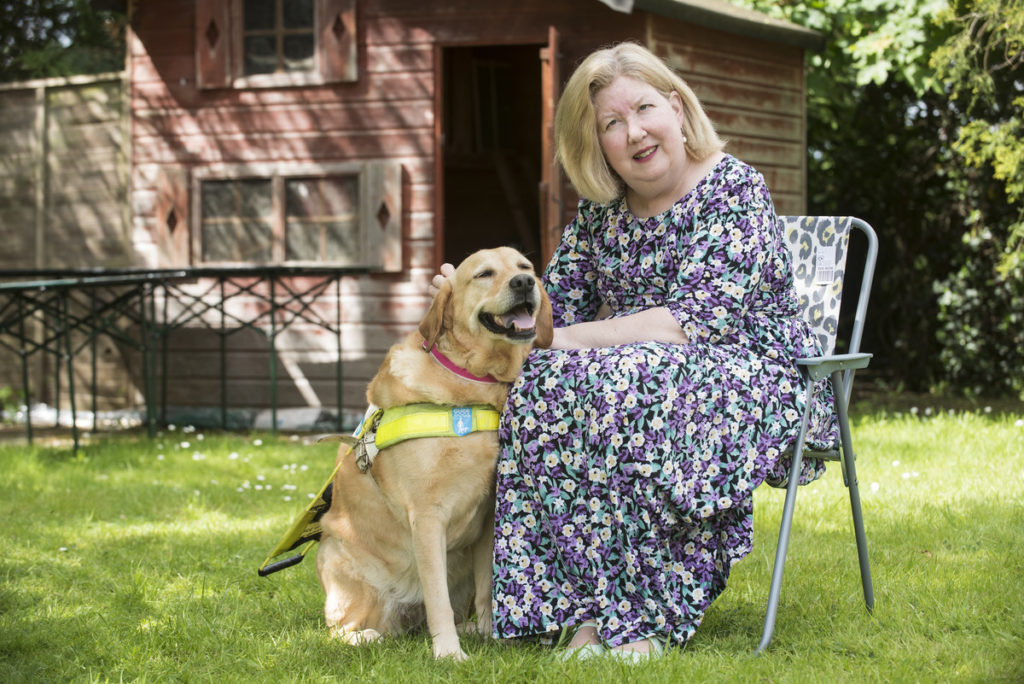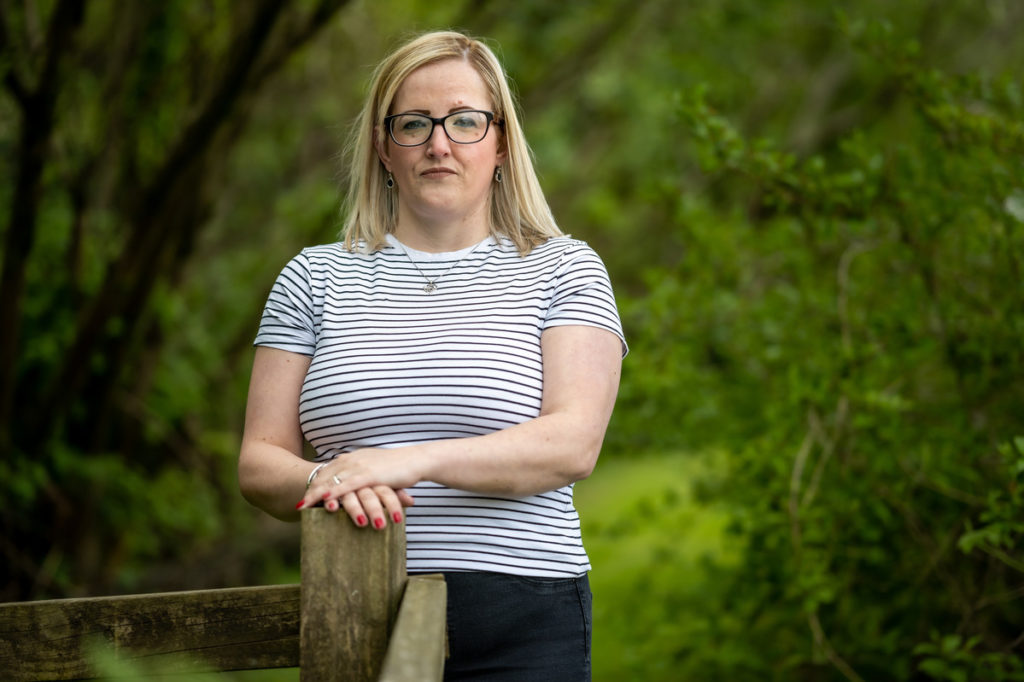New research raises fear that disabled people will be left behind as UK reopens
- Many disabled people say they are fearful to go out in public, with one in two (56%) concerned about their health, and more than a third (39%) anxious because they’re not able to comply with safety measures, such as social distancing and wearing a face covering.
- Isolation and loneliness have dramatically increased amongst disabled people over the last 12 months, with almost two thirds (61%) now experiencing ‘chronic loneliness’. Over the same period, two out of five (41%) disabled people say they have been unsupported by their local community.
- The research is part of a new report by the disability charity, Sense, published for ‘Loneliness Awareness Week’ (14 June 2021), calling on the Government and local communities to do more to support disabled people as we move out of lockdown.

15 June 2021 – The disability charity, Sense, is calling on Government and local communities to ensure disabled people are not “left behind” as lockdown restrictions ease, as new research reveals many are fearful to go out in public.
The pandemic has had a severe impact on disabled people. They account for six out of every 10 deaths with coronavirus*, while making up 22 per cent of the population. Many disabled people have shielded for months at a time, and while Government advice to shield has now paused, almost half (45 per cent) of those classed as Clinically Extremely Vulnerable (CEV) say they continue to shield, despite an 85 per cent vaccination rate among this group **.
Concern about health, cuts to social care, and fear of being unable to comply with social distancing measures, have all contributed to disabled people losing confidence and independence, with many avoiding leaving home at all. Isolation and loneliness have spiralled, with nearly two thirds (61 per cent) of disabled people now describing themselves as ‘chronically lonely’***.
The concern now is that, as the UK looks forward to life beyond lockdown, many disabled people will remain behind closed doors, isolated and cut off from their communities.
More than a thousand disabled people were surveyed**** for a new report by Sense: ‘Left out of life: Inclusion in local communities’, published for ‘Loneliness Awareness Week (W/c 14 June). One in two (50 per cent) said they have become isolated and lonely because they have been unable to access local activities and venues over the last twelve months, and two out of five (41 per cent) said they felt unsupported by their local community.
More than half (56 per cent) of all disabled people said they were now fearful of going into public because of concerns about their health and not feeling safe. More than a third (39 per cent) said they were anxious because they’re not able to comply with safety measures, such as social distancing or wearing a mask.
Alongside the charity’s existing call for Government to increase mental health provision, and the reinstatement of community services, so disabled people can receive more support, Sense is also urging communities and business to think of the needs of disabled people as society reopens.
Richard Kramer, Sense Chief Executive, said:
“The severe impact of the pandemic has meant that many disabled people are now fearful and anxious about going out into public, and unless we support and prioritise them, isolation and loneliness will become a bigger problem.
“We must recognise that cuts to services and reduced support have contributed to the isolation that people are experiencing, and reinstate community services, while ensuring mental health support is available for those that need it.
“Our local communities also have an important role to play in ensuring that disabled people are not left behind as we move out of lockdown.
“The changes that we make to adapt to social distancing rules, such as increased outdoor dining, must be planned with the needs of disabled people in mind. Sadly, in recent weeks we have heard too many reports of people not being able to navigate the high street because pavements are blocked.
“Let’s show patience and understanding if someone is unable to wear a face covering, and provide that extra space to someone we pass on the pavement – it may really help to put them at ease.”
59-year-old, Jane Manley, from Horley in Surrey, is blind. Due to a previous kidney transplant Jane has shielded over the past year and is now fearful to go back out with lockdown lifting.
Jane Manley said:
“Before, I was very independent and could do everything with my guide dog. Now, I have lost a lot of confidence. When I go out my heart rate is really high as I am so nervous.
“The physical spaces outside has changed so quickly.
“I bumped into a family who were eating outside, the family shouted at me even though I was with my guide dog. They shouted, ‘people like you shouldn’t be out’. This makes you feel unsure of yourself and knocks your confidence a lot.”

38-year-old Natalie Williams, from Ebbw Vale, Wales, has Usher syndrome, which causes a combination of deafness and gradual sight loss. She says the pandemic has taken a huge toll on her is anxious about going into public.
Natalie Williams said:
“Since the first lockdown, I’ve lost all the independence I’ve worked so hard for. I’ve become very isolated and have lost my confidence.
“Lockdown restrictions are easing, but it’s still hugely challenging to go out, because It’s hard for me to socially distance. I can only see a short distance in front of me and can’t see how close I am to someone. People don’t give me space and it’s easy to bump into them. I get comments and it’s made to feel like it’s my fault. That’s why I don’t go out.”
The new report from Sense: ‘Left out of life: Inclusion in local communities’, includes recommendations on how we can make our communities, high streets, venues and social activities more accessible and welcoming to disabled people.
For a copy of the report, please email: [email protected]
Contact Sense’s media team
Email: [email protected]
Phone number: 0203 833 0611
